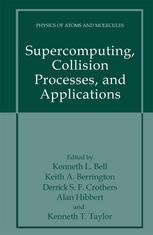

Most ebook files are in PDF format, so you can easily read them using various software such as Foxit Reader or directly on the Google Chrome browser.
Some ebook files are released by publishers in other formats such as .awz, .mobi, .epub, .fb2, etc. You may need to install specific software to read these formats on mobile/PC, such as Calibre.
Please read the tutorial at this link: https://ebookbell.com/faq
We offer FREE conversion to the popular formats you request; however, this may take some time. Therefore, right after payment, please email us, and we will try to provide the service as quickly as possible.
For some exceptional file formats or broken links (if any), please refrain from opening any disputes. Instead, email us first, and we will try to assist within a maximum of 6 hours.
EbookBell Team

4.0
66 reviewsProfessor Philip G. Burke, CBE, FRS formally retired on 30 September 1998. To recognise this occasion some of his colleagues, friends, and former students decided to hold a conference in his honour and to present this volume as a dedication to his enormous contribution to the theoretical atomic physics community. The conference and this volume of the invited talks reflect very closely those areas with which he has mostly been asso- ated and his influence internationally on the development of atomic physics coupled with a parallel growth in supercomputing. Phil’s wide range of interests include electron-atom/molecule collisions, scattering of photons and electrons by molecules adsorbed on surfaces, collisions involving oriented and chiral molecules, and the development of non-perturbative methods for studying multiphoton processes. His devel- ment of the theory associated with such processes has enabled important advances to be made in our understanding of the associated physics, the interpretation of experimental data, has been invaluable in application to fusion processes, and the study of astrophysical plasmas (observed by both ground- and space-based telescopes). We therefore offer this volume as our token of affection and respect to Philip G. Burke, with the hope that it may also fill a gap in the literature in these important fields.